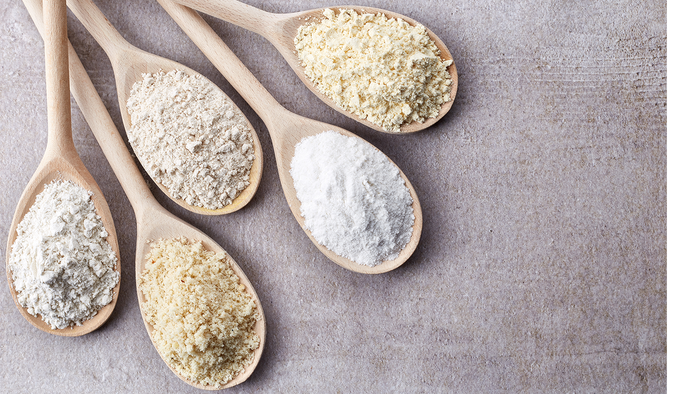Vegan baked goods ‘rise’ to the challenge
Plant-based baked goods are gaining mainstream appeal as brands innovate with allergen-free ingredients, natural plant-based fats and custom flour blends to deliver indulgent treats that rival traditional options in taste and texture.

At a Glance
- Vegan baked goods are gaining traction beyond vegan consumers, with sales reaching $450 million, signaling mainstream appeal.
- Brands are overcoming challenges by developing alternatives to traditional baking staples like butter, eggs and wheat flours.
- They are also prioritizing sustainability and consumer feedback to drive innovation.
Plant-based foods, even “buttery” treats like cakes and cookies, are gaining popularity in the mainstream market, which you can read more about in SupplySide Food & Beverage Journal's better-for-you baked goods digital magazine.
According to proprietary SPINS data, sales of baked goods labeled vegan reached about $450 million in the past year alone, indicating appeal beyond the 1% of Americans who identify as vegan. But to truly win over the mainstream consumer, plant-based options must be able to compete with nonvegan goodies in taste and texture.
Executives from three plant-based bakery brands — Karma Nuts, Mightylicious (which is also gluten-free) and Partake Foods — talked with us about challenges, innovation and the future of vegan bakery.
SupplySide Food & Beverage Journal: What was a major technical challenge you overcame when creating plant-based baked goods?
Denise Woodard, founder and CEO, Partake Foods: Butter and eggs are traditional ingredients when baking indulgent snacks. However, it’s important to us that Partake be as inclusive as possible. To us, that means delicious cookies, grahams and vanilla wafers that are free of the top nine allergens (including eggs and milk). So, we’ve leaned into plant-based ingredients that, when they work together thoughtfully, replicate that experience. It’s not been without trial and error, though. We’ve probably been through hundreds of formulations at this point, and we’re continuing to keep our eyes on alternatives that meet our high-quality standards and support our mission of inclusivity.
Carolyn Haeler, founder and owner, Mightylicious: Rice flour, the most frequently used flour in gluten-free baking, is manufactured for cooking — not baking — and other flours, such as sorghum, garbanzo bean and amaranth flours, simply put, don’t taste good. They often have chalky or gritty textures and strange/bitter/earthy aftertastes. They are wonderful for cooking, but far too overpowering for the delicate flavor profile of a cookie or cake.
This is where determination and innovation were married. I went directly to the mill to get rice flour that would work for baking, and created a flour blend that looks, tastes and behaves like wheat flour. The result is a cookie that is delicious, indulgent and better for you.

SupplySide Food & Beverage Journal: Which plant-based fats do you rely on in your recipes?
Ganesh Nair, founder, Karma Nuts: We used the goodness of cashew flour to replace that buttery, decadent taste associated with nonplant-based cookies because we absolutely love cashews here at Karma Nuts, and cashews are naturally rich in those flavors that we wanted to emulate. Cashews are also a good source of six key vitamins and minerals and allow our cookies to deliver 3 grams of plant-based protein per serving. We are also using dates and coconut oil to bind the dough together, creating a delicious, soft and chewy cookie without using any animal products.
Haeler: We rely on sustainably sourced palm oil. Palm oil is really the only fat outside of butter that is solid at room temperature and neutral in flavor. It can be a good substitute for butter or margarine in vegan baking because of its creamy texture, neutral flavor and ability to improve baked goods’ texture and moisture. Palm oil can also improve the volume of baked goods, help support good layering in puff pastries and croissants, and create tender and flaky textures. Plus, it has a longer shelf life than other vegetable oils, so it can be stored for longer without going rancid.
SupplySide Food & Beverage Journal: How can vegan bakery brands continue to improve?
Nair: A lot of brands are bringing vegan options to the market that are “me too” — a vegan option of the conventional product that is currently on the market. While that can be successful, we think there is much greater power in developing products that use the natural goodness of vegan ingredients to create the best possible snack. A good example of this is Dr. Praeger’s veggie burgers. They are vegan, not because of frankenfood ingredients, but because of how they naturally formulated their recipe. And as an incredibly popular frozen brand, we think there is something to be learned here.
Woodard: I can’t speak for other brands, because everyone should make the best decisions for their business, but what we are focusing on is keeping our eye on emerging technology and trends and reformulating as needed, maintaining relationships with reputable suppliers producing the highest quality ingredients, and listening to consumer feedback to ensure we’re creating products they love.
About the Author
You May Also Like